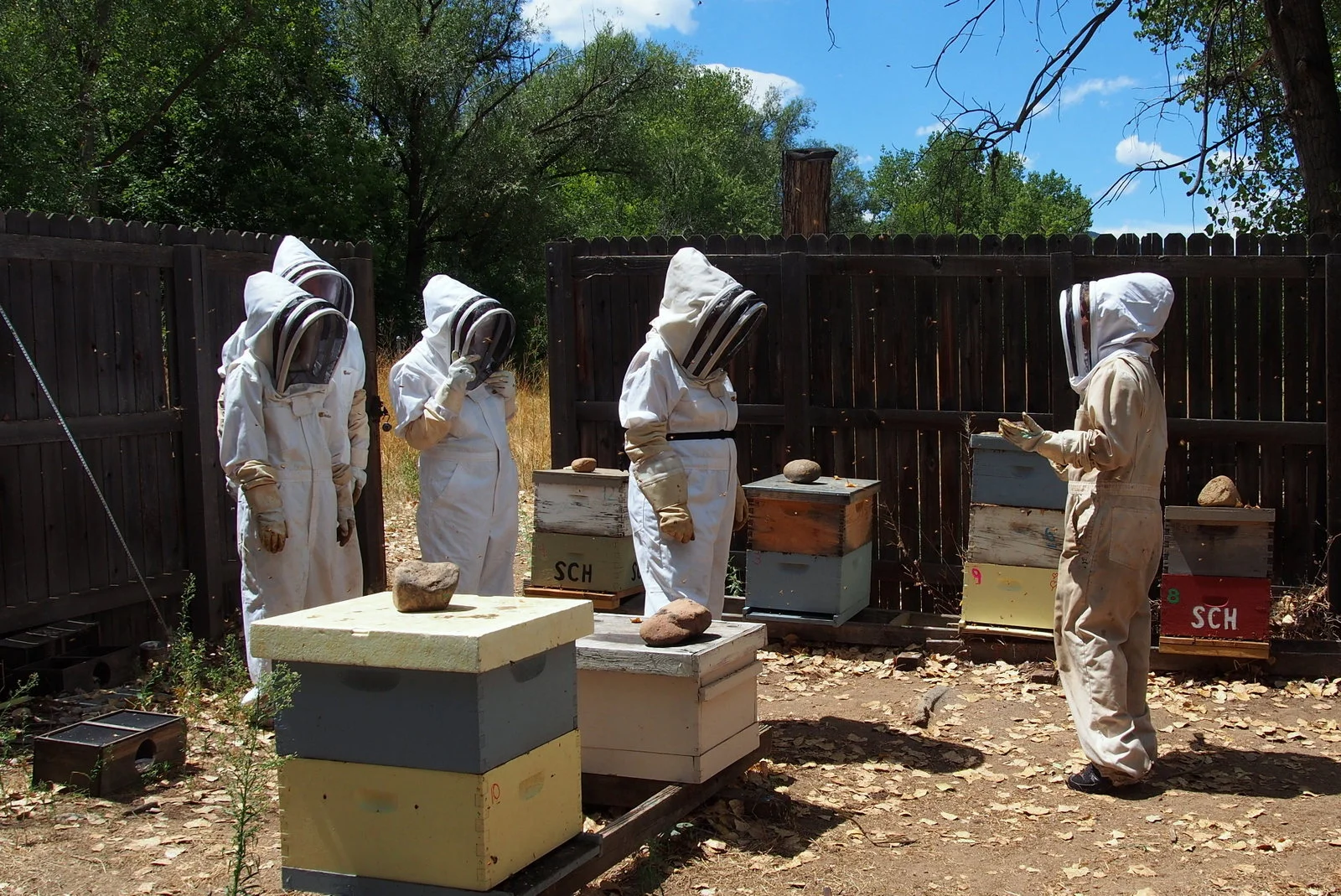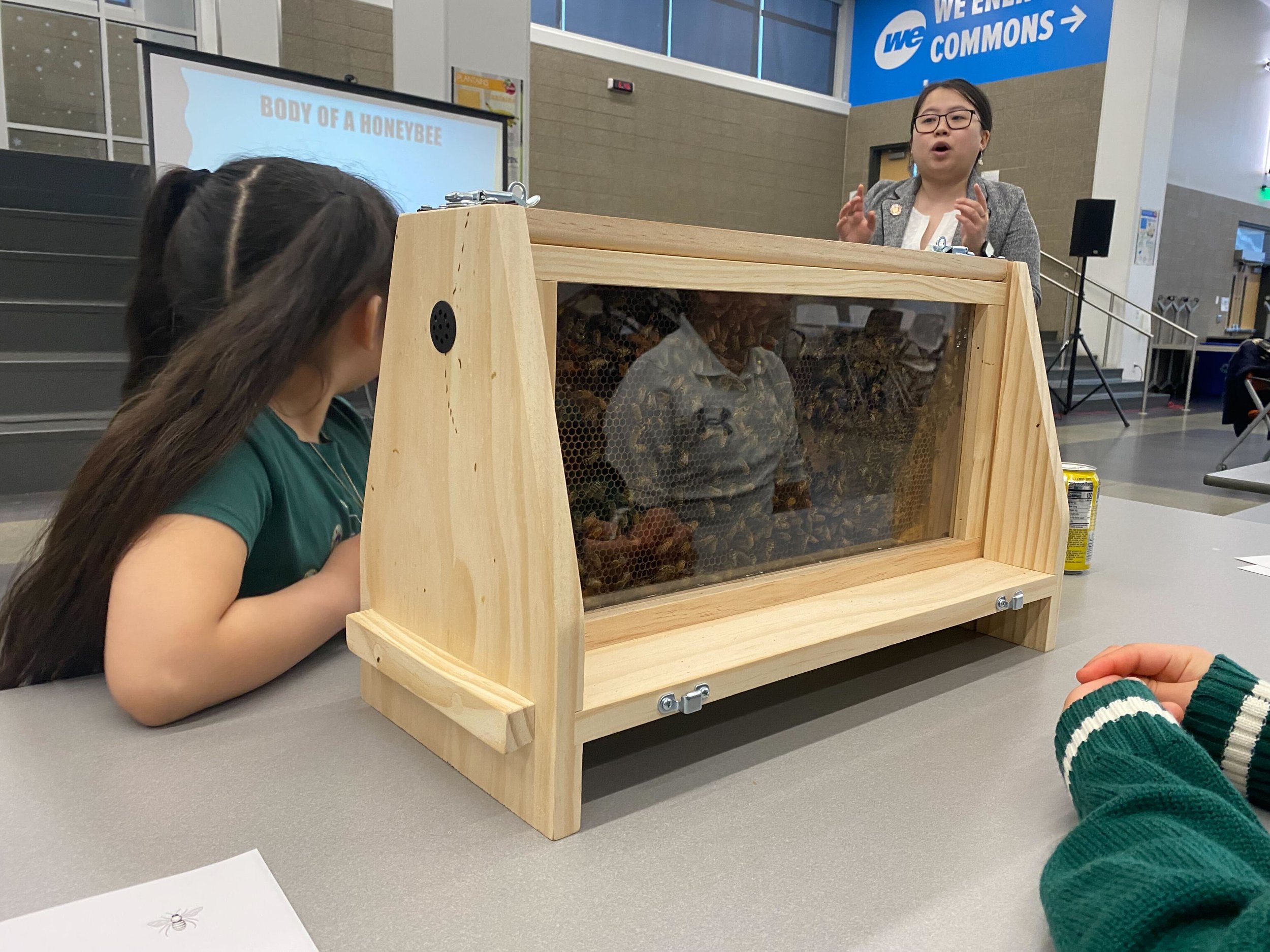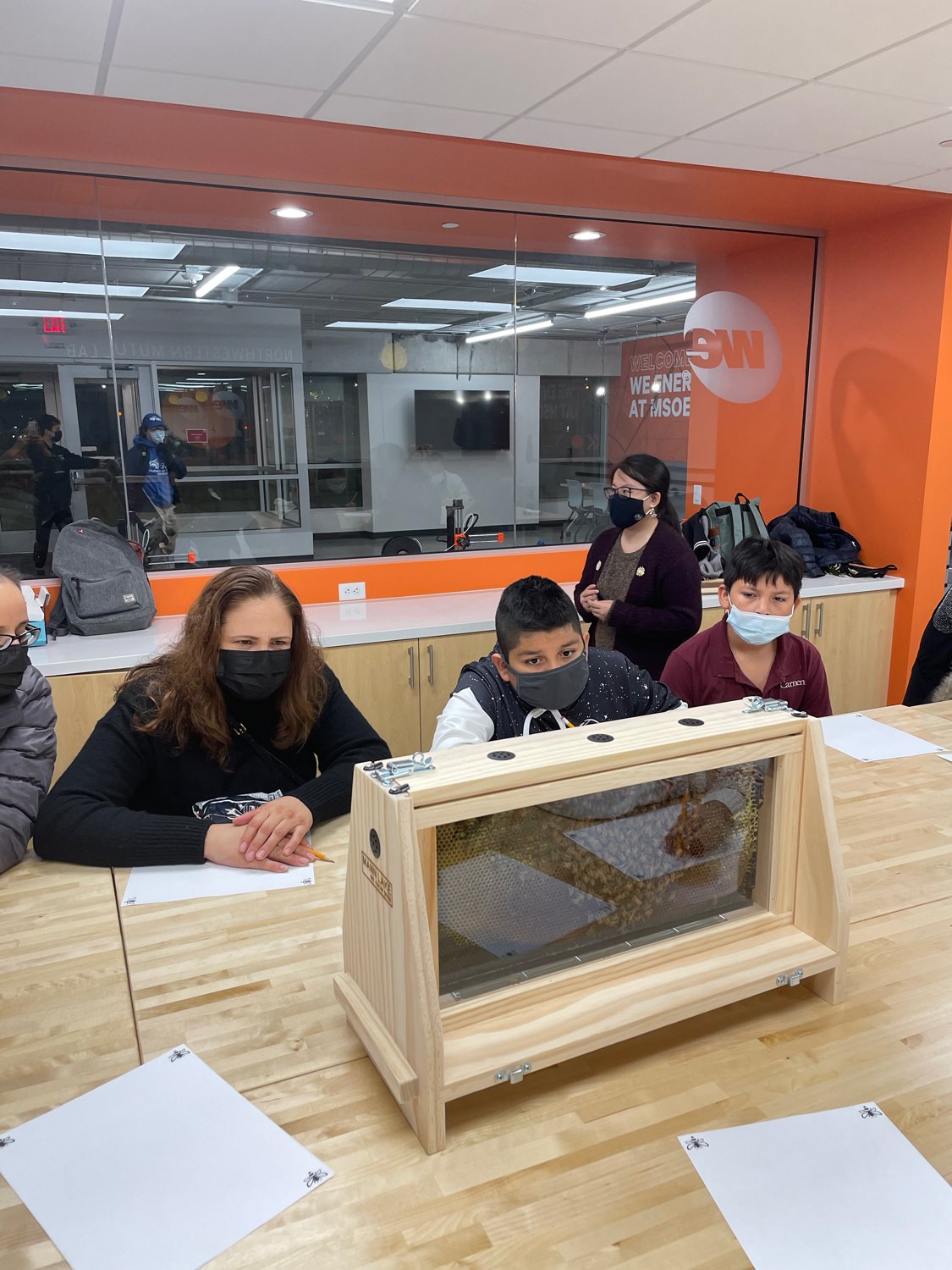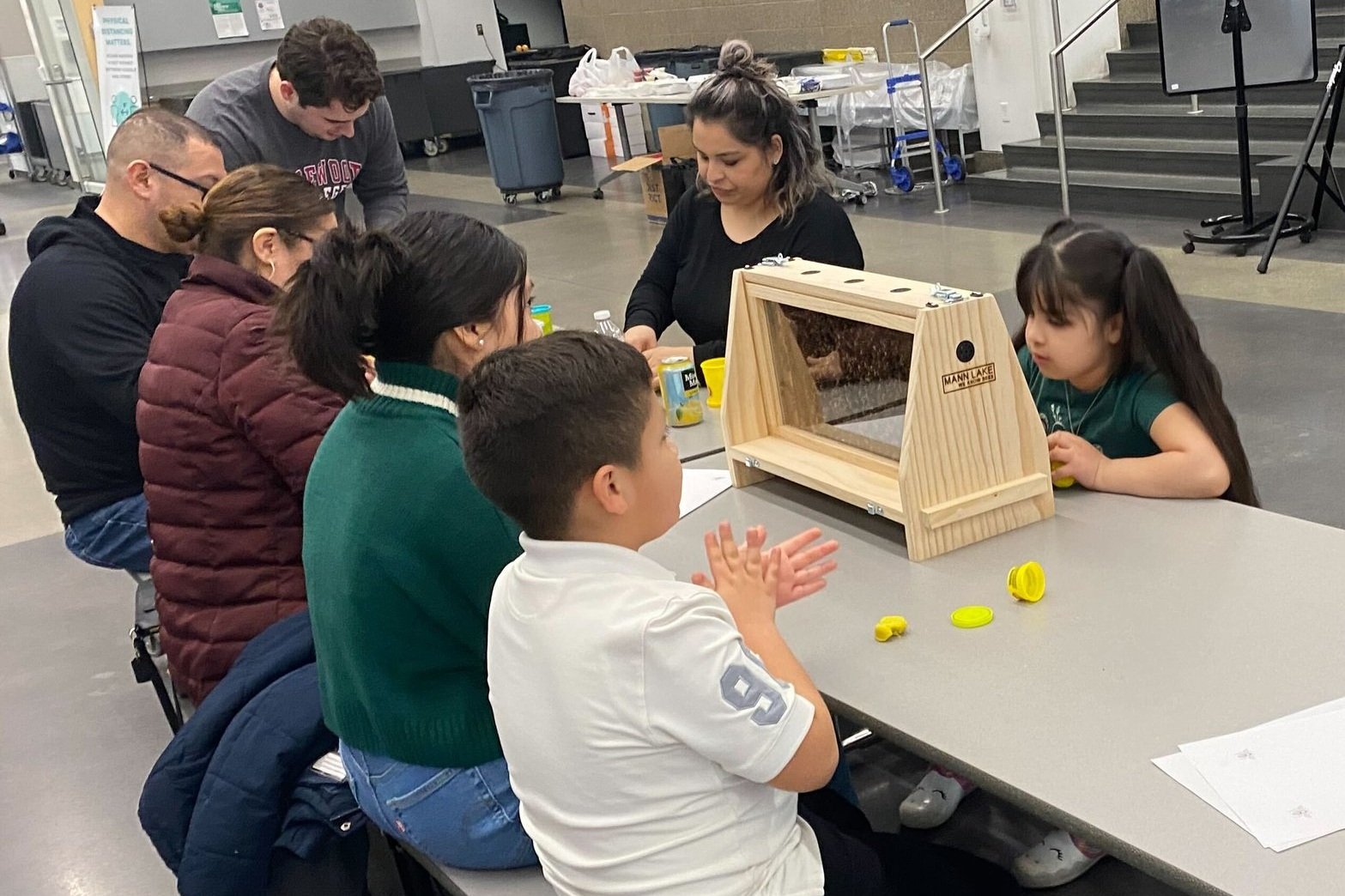Teaching Biology in Prisons
Everyone deserves a college education.
At Marquette University, Dr. Cook works with the Education Preparedness Program (EPP)through the Center for Urban Teaching, Research, and Outreach (CURTO) to teach a summer beekeeping workshop to students who are transitioning out of the Wisconsin Department of Corrections system.
Using the Inside Out exchange model established by Temple University, Dr. Cook also teaches Environmental Biology, EPP’s first STEM course, to both inside and outside students who are earning credit at Marquette University.
As a postdoc at ASU, Dr. Cook participated in the excellent Prison Biology Education Program that brought a General Biology course to inmates at the Eyman State Prison in Florence, Arizona.
Bringing bee biology to middle school students
Dr. Cook works with the ROSE project through Edgewood College where she teaches beekeeping and bee biology to middle school students. It is a bilingual course (English and Spanish), and it’s not just for the students - parents are encouraged to join in too!
Parents and students observe a colony of bees, discuss bee ecology, and analyze how beekeeping is crucial for our well-being.
Neuroscience workshops
Dr. Chelsea Cook has helped organize and instruct at two international workshops on honey bee behavior. In April of 2019, she co-taught at Small Brains, Big Ideas, a workshop that provides tools for studying neuroscience and behavior in invertebrates, including honey bees. Working with Dr. Brian Smith and Dr. Geraldine Wright, they showed graduate students from across South America how to use honey bees to study learning behavior.
In May 2018, Dr. Cook traveled to the Beekeeping Research Institute in Ordu, Turkey that focuses on ways to improve the Turkish beekeeping industry. With Dr. Brian Smith and Dr. Osman Kaftanoglu, they organized and hosted a three-day workshop of lab exercises and lectures, showing local beekeepers and government researchers how to perform learning assays on honey bees to understand how different chemicals may be affecting individual and colony health.
Beekeeping as a tool in addiction recovery
Beekeeping is a relaxing hobby that can be used as a tool for healing. As a graduate student, Dr. Cook worked with Harvest Farms, an addiction recovery facility associated with the Denver Rescue Mission, to develop a 6-week beekeeping course. Students in this course learned honey bee biology, pollination behavior, basic beekeeping techniques, and how to extract honey. These tools can be applied as job skills once students have graduated from the recovery program, and one former student recently got a job as a beekeeper in Colorado!







